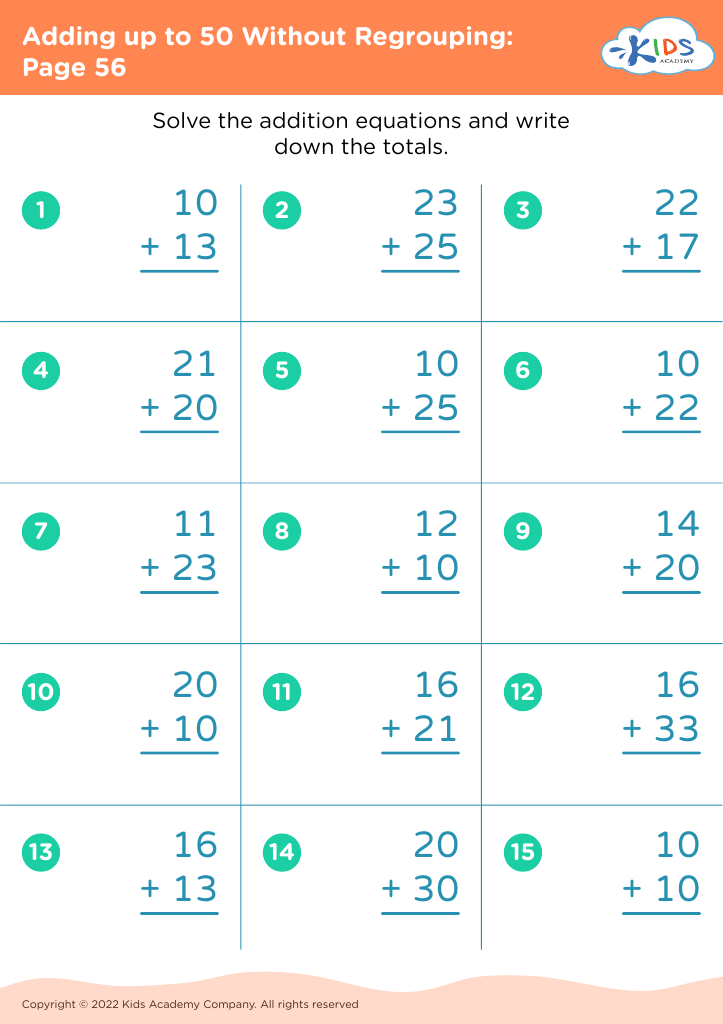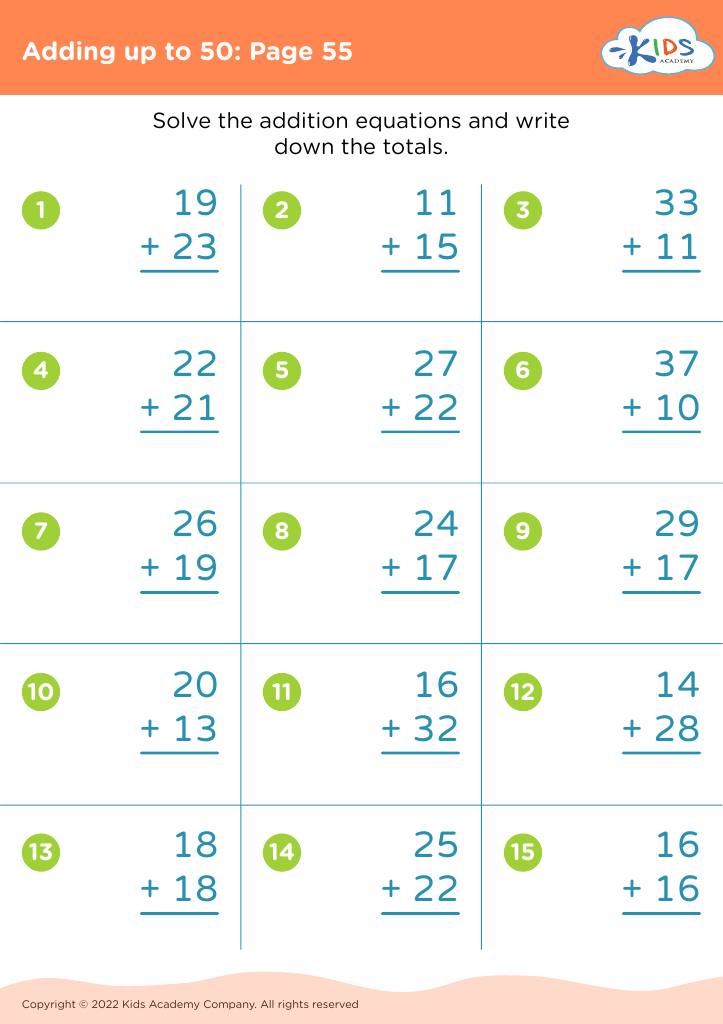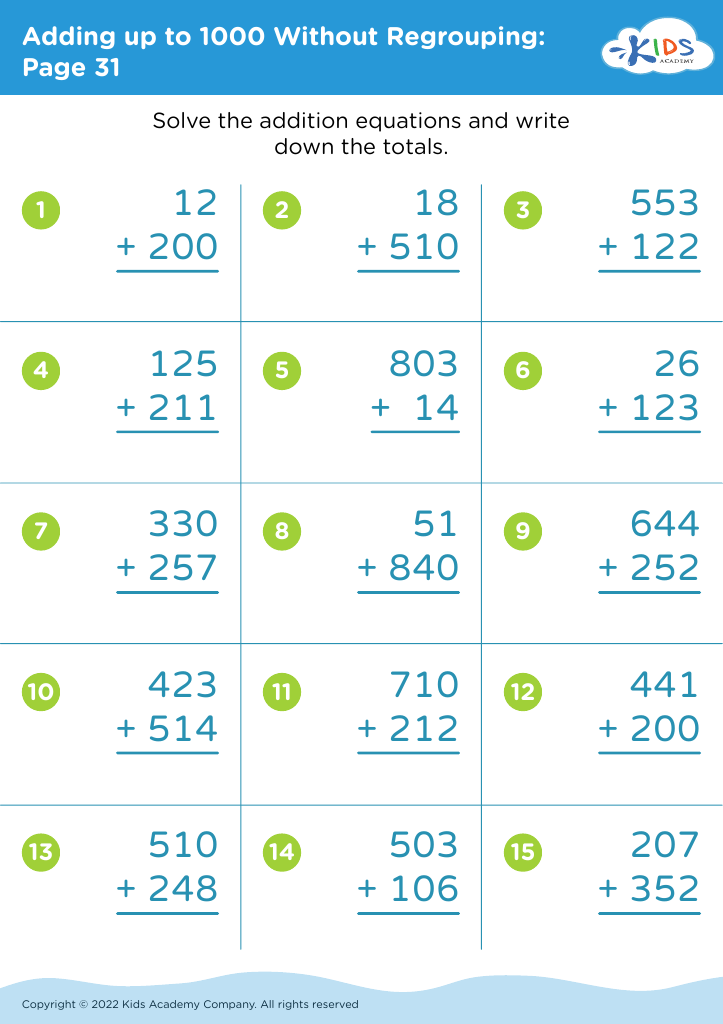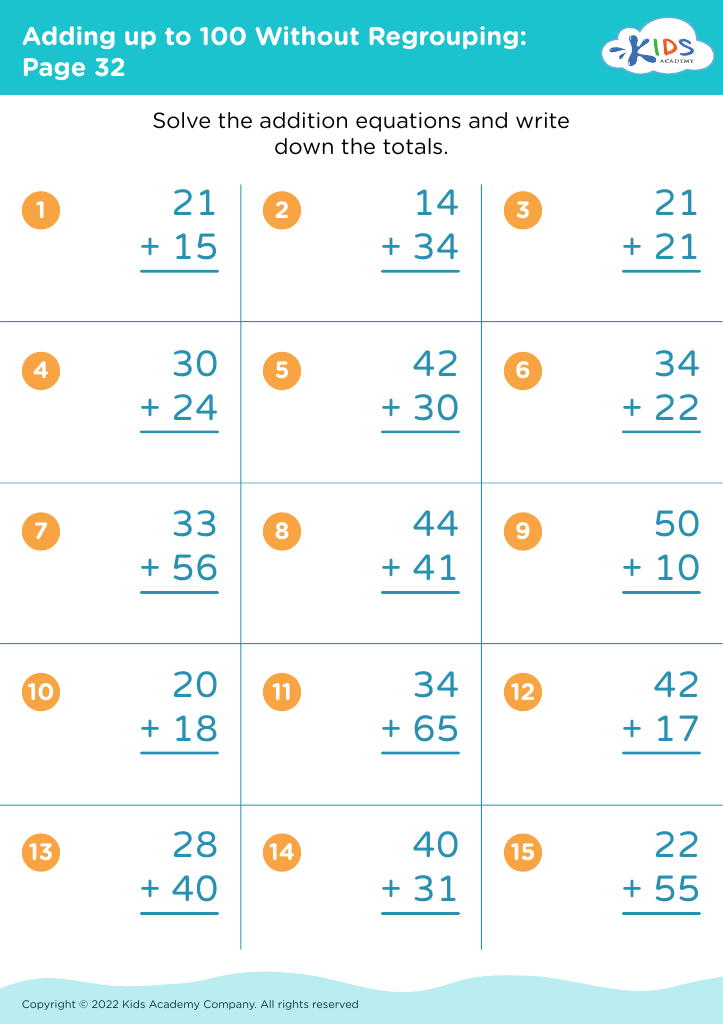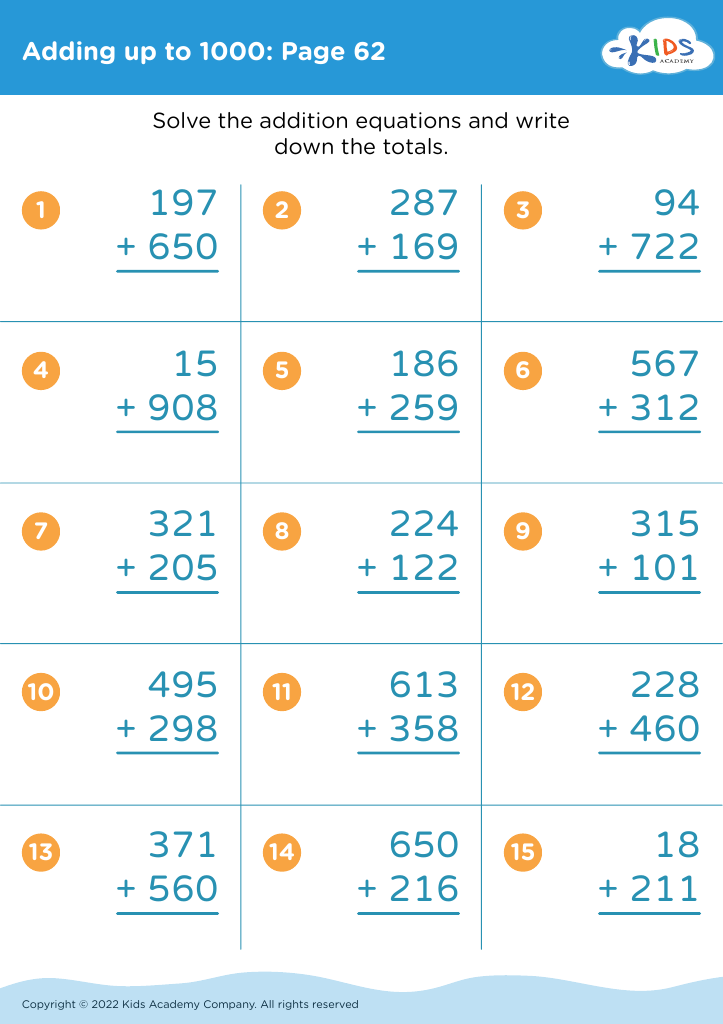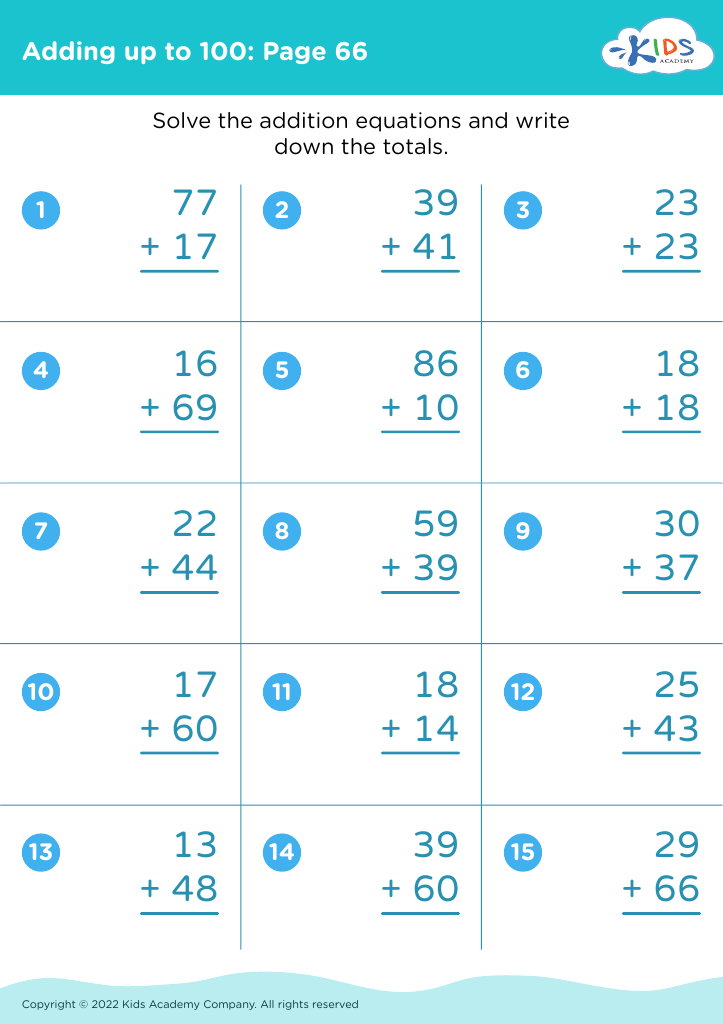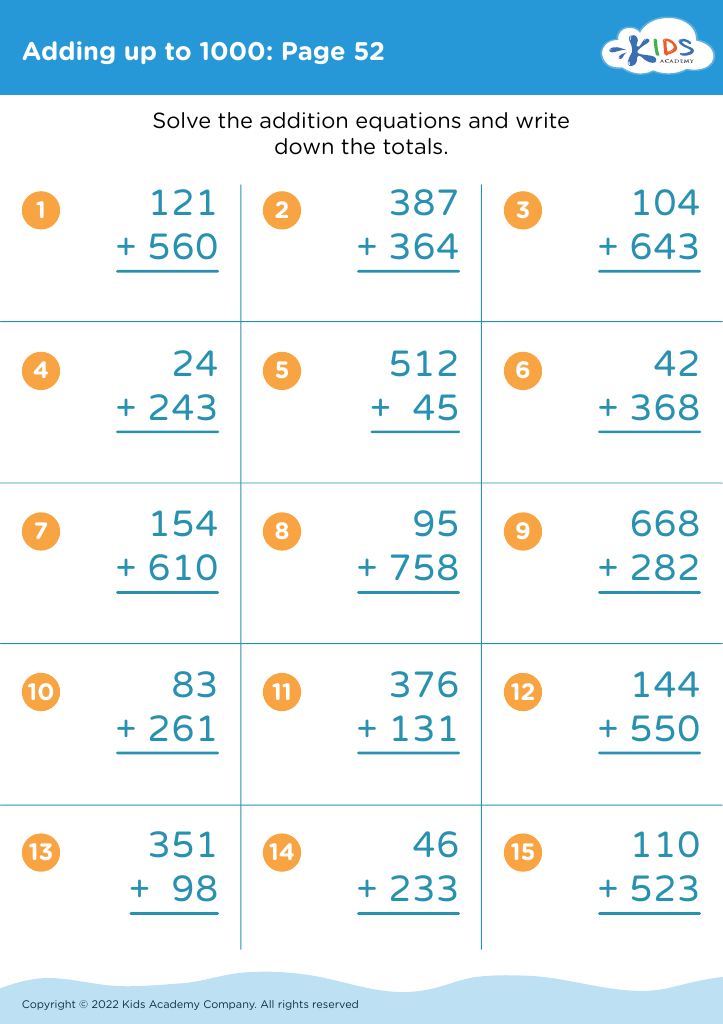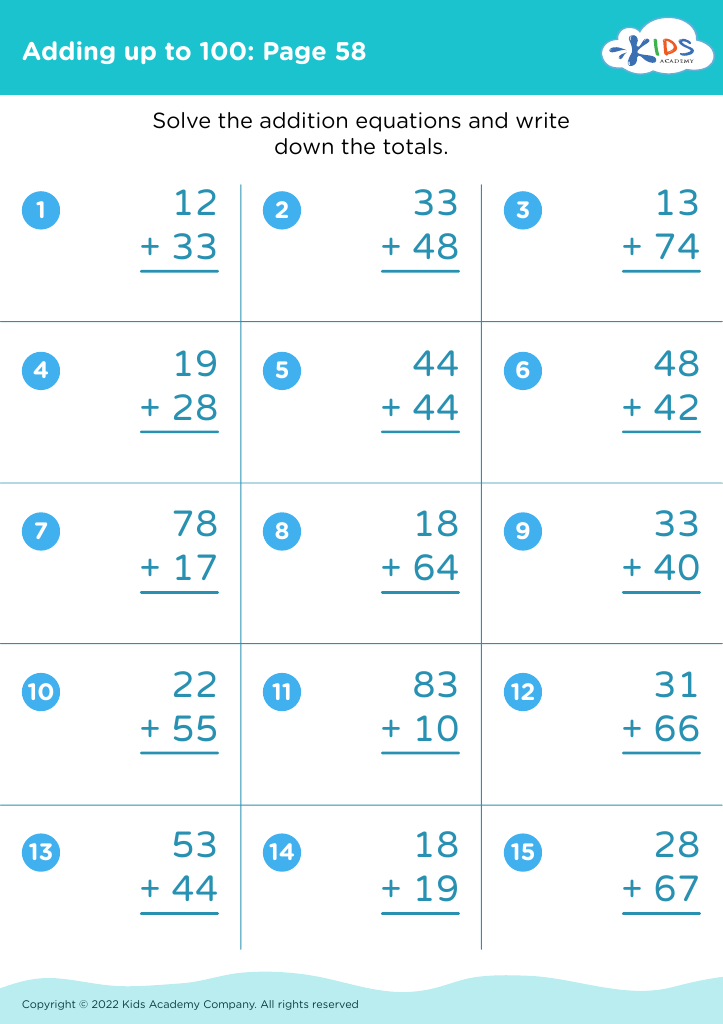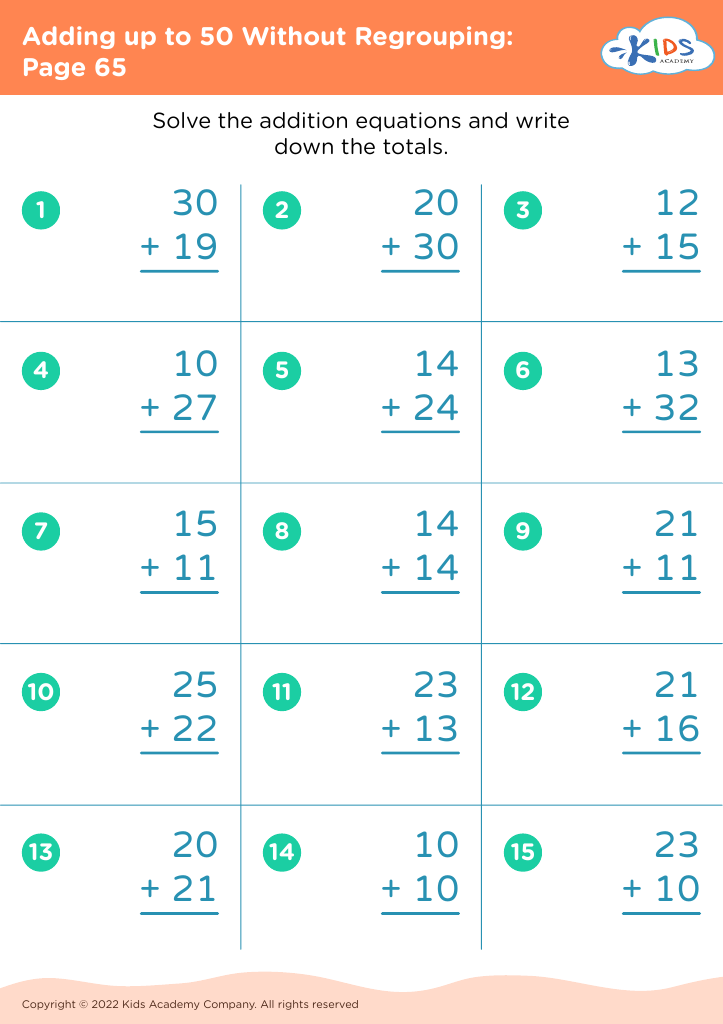Understand fractions Addition Worksheets for Ages 4-9
20 filtered results
-
From - To
Welcome to our "Understand Fractions Addition Worksheets" page for children aged 4-9! These engaging worksheets are designed to help young learners grasp the concepts of fractions and addition in a fun and interactive way. Through colorful visuals and relatable examples, kids will explore adding fractions with like denominators, enhancing their early math skills. Our carefully crafted resources empower children to build a solid foundation for future math success. Whether at home or in the classroom, these worksheets encourage independent learning while making math enjoyable. Dive into the world of fractions today and watch your child's confidence grow!
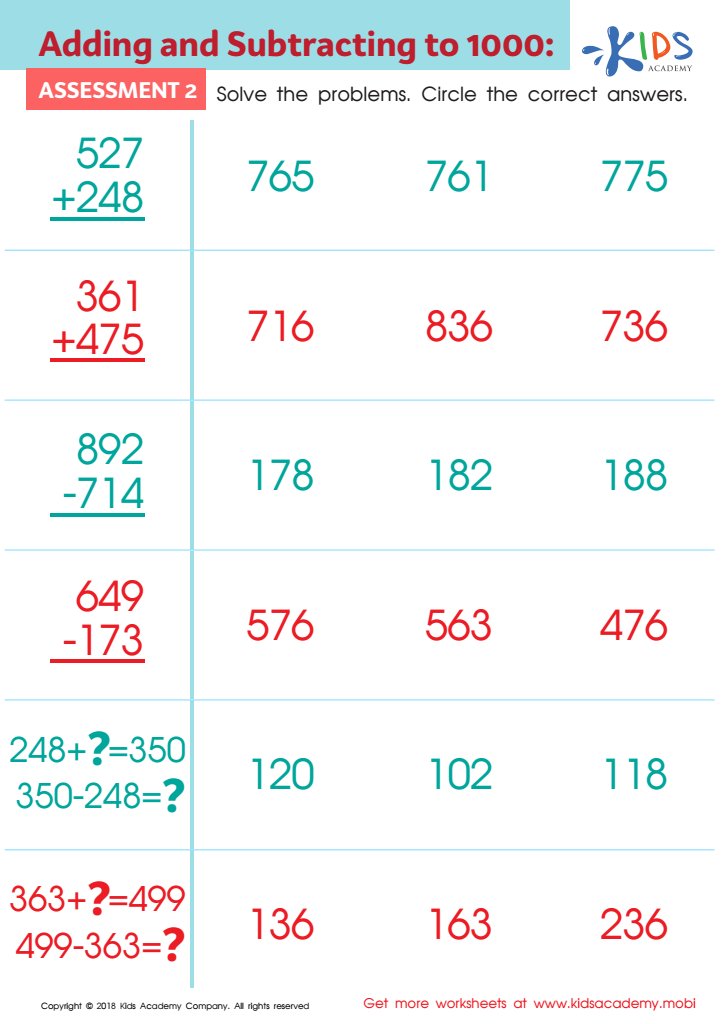

Adding and Subtracting to 1 Worksheet: Assessment 2
Understanding fractions and addition is essential for children aged 4-9, laying a foundation for their mathematical development. During these early years, children are like sponges, absorbing concepts that shape their cognitive skills and problem-solving abilities. Introducing fractions in relation to addition helps children grasp the idea of parts of a whole, an important concept that not only aids in math but also enhances critical thinking skills.
Furthermore, when children understand how to combine fractions through addition, they develop flexibility in their thinking and learn to approach problems from different angles. This builds their confidence in tackling math and encourages a positive attitude towards the subject.
Moreover, mastering these basic math skills has implications for daily life activities, such as cooking, sharing food, or divisions in groups, making math relevant and accessible to them. Parents and teachers should actively engage children in fun, hands-on experiences that reinforce these concepts, making learning impactful and enjoyable. Developing a solid understanding of fractions and addition sets a strong foundation for more advanced math. By caring about these essential skills, adults empower children to succeed academically and build lifelong skills necessary for various aspects of life.

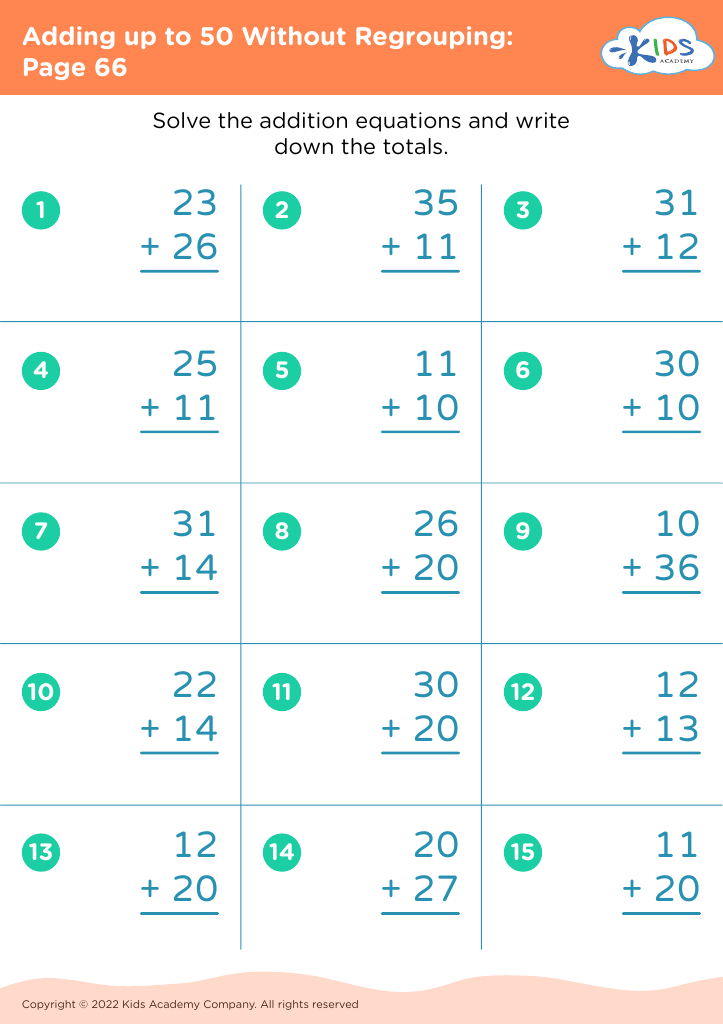

 Assign to My Students
Assign to My Students
